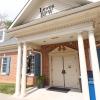Delmarva Chicken Association is publishing its reference manual for vegetative environmental buffers on chicken farms, the VEB Tool-Kit, in three new languages – Vietnamese, Korean, and Urdu – for an increasingly diverse audience of chicken growers on Delmarva who share a common goal of protecting natural resources and being good neighbors.
The VEB Tool-Kit, a free resource at dcachicken.com, is a widely used guide to planning, installing and maintaining ‘living fences’ of evergreen trees, shrubs, and tall grasses around chicken houses and chicken farms. Planting these buffers has both air quality and water quality benefits. Properly designed vegetative environmental buffers with farm-specific plants – trees, shrubs and warm-season grasses – help capture dust, noise and odor from chicken houses. Also, these VEBs can absorb nutrients in the soil and water around chicken houses. Buffers can also help chicken growers conserve resources by shading tunnel fan areas in summer, which helps keep houses cool, and serving as windbreaks in winter, reducing propane consumption to keep houses warm.
For more than 15 years, the association’s VEB program has provided chicken grower members free technical assistance with their buffers and connected them with cost-share funding opportunities. This program has been supported through outside grants as well as directly funded by each of the chicken companies on Delmarva. In 2020, chicken growers and businesses in Delmarva’s chicken community installed 6,069 trees and other plantings through the VEB program.
“Earth Day is an excellent time for DCA to make our industry-leading VEB Tool-Kit available to growers in new languages,” said Holly Porter, DCA executive director. “The chicken community and its more than 1,200 family farmers who raise chickens come from more backgrounds, and speak more languages, than ever before, and we’re immensely proud that chicken is a way of life for people from all walks of life. We hope growers who speak Korean, Vietnamese and Urdu find these translated editions of the VEB Tool-Kit useful in the common mission of safeguarding the environment while feeding millions of families.”
Delmarva’s chicken community is committed to environmentally responsible and sustainable chicken production practices to ensure a healthier planet. Chicken production in the U.S. is more sustainable than ever before, with the environmental footprint of chicken production having decreased by 50 percent since 1965. It takes 58 percent less water and 72 percent less farmland to produce the same amount of chicken than it did in 1965, and more than 95 percent of poultry litter is recycled and reused to fertilize crops.
To view a video showcasing what sustainability means to chicken farmers and featuring several Delmarva growers, go to tinyurl.com/chickensustain.























































